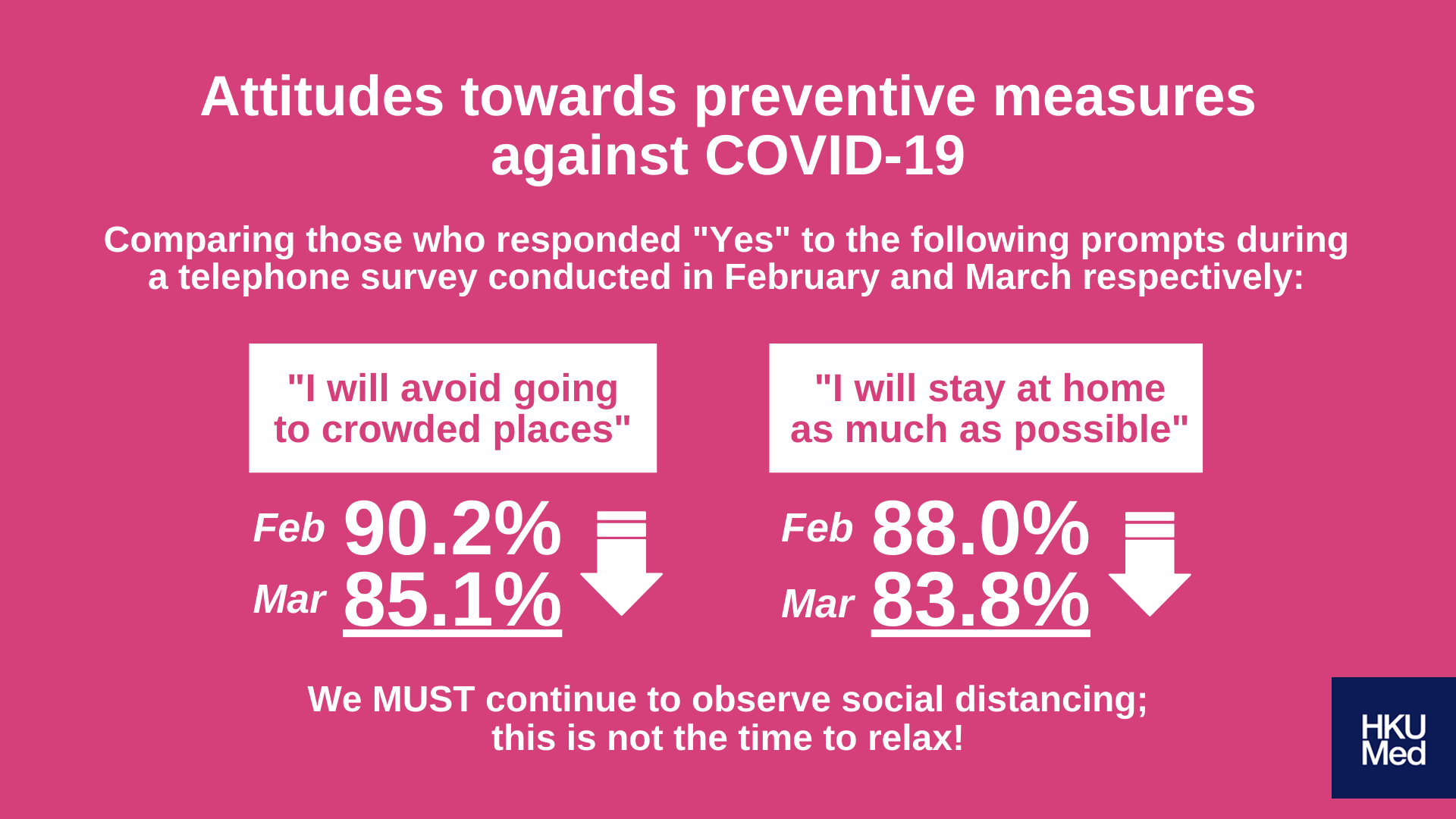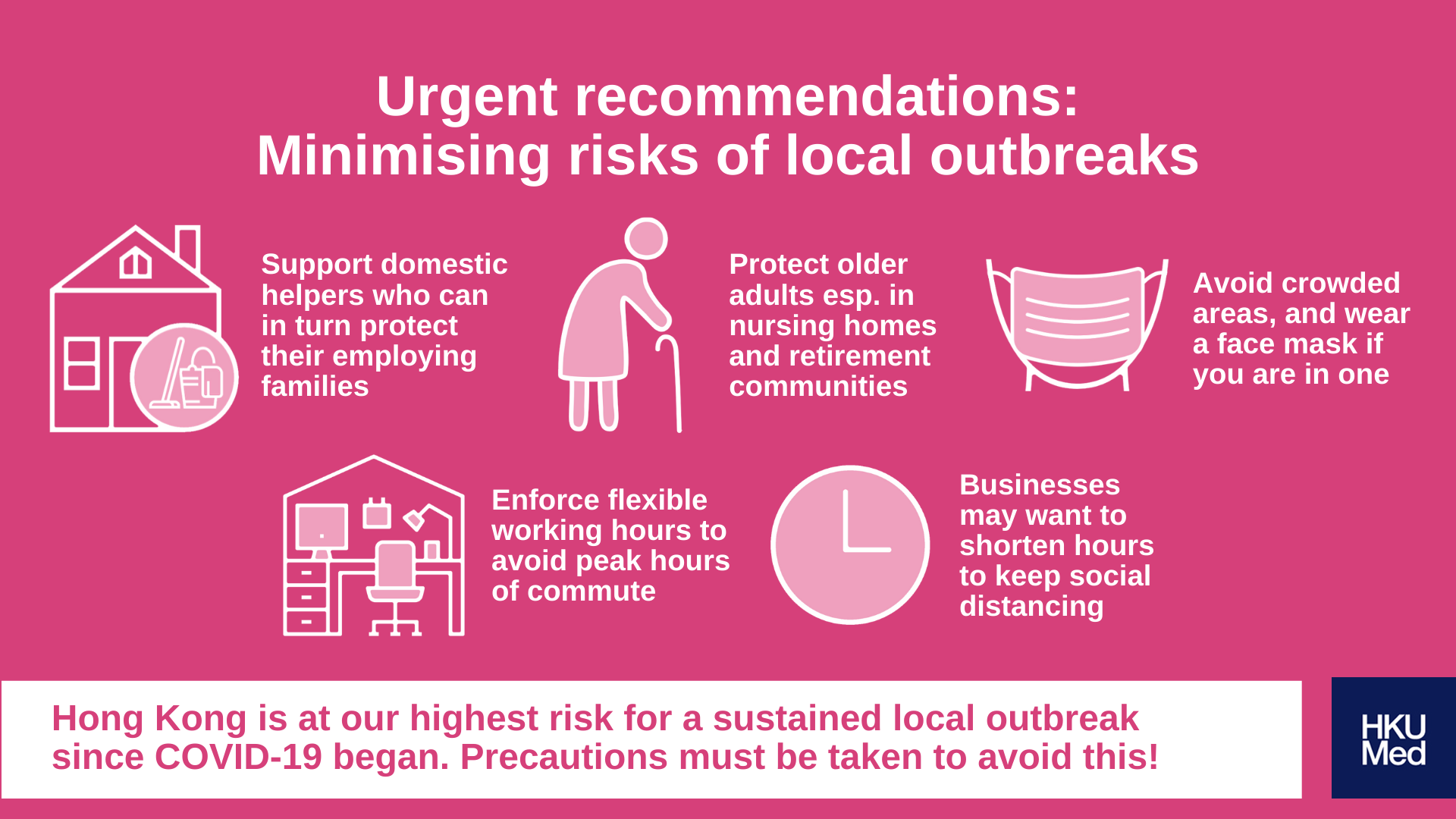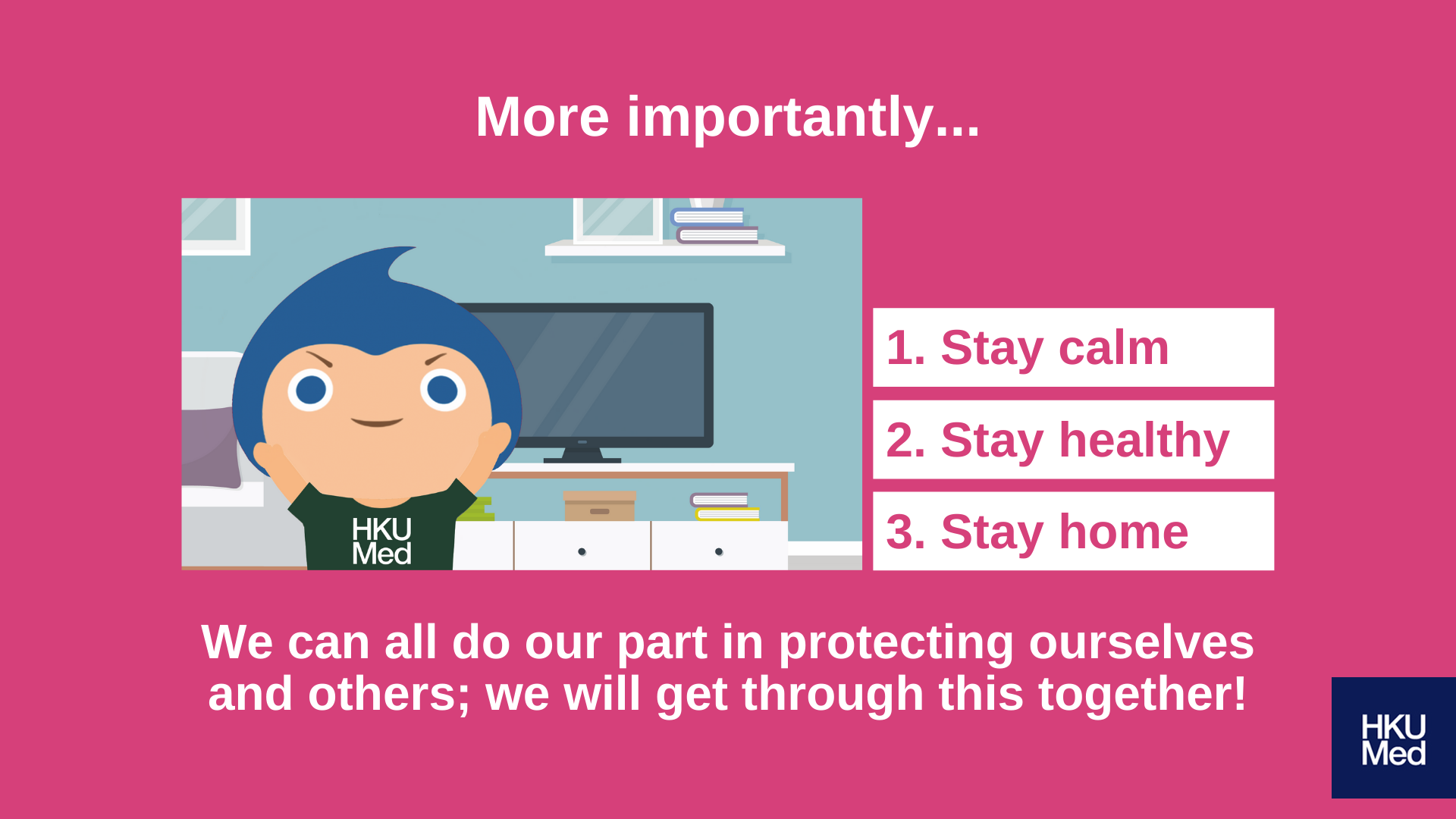
The HKUMed WHO Collaborating Centre for Infectious Disease Epidemiology and Control released their latest findings today showing the instantaneous effective reproductive number of the new coronavirus. Findings show that the reproductive number of the coronavirus has remained greater than 1 (i.e. at least one other person will be infected by a viral carrier or patient of COVID-19) for over a week now; this is unprecedented in the city since the outbreak began in late January, suggesting that Hong Kong is possibly faced with the greatest threat yet for a community outbreak.

The study also tracked attitudes in Hong Kong toward precautionary measures during the outbreak to better understand actions that have been taken at individual levels against infectious diseases. Over the course of the past few months, three rounds of telephone surveys were conducted in Hong Kong. In their most recent round of survey data collection in March, 85.1% of interviewees agreed that they would “avoid going to crowded places” to combat the outbreak, a decrease from 90.2% back in February; similar trends in change of attitude were observed when only 83.8% of interviewees agreed that they would “stay at home as much as possible”, contrasted with 88% back in February. This suggests that, while the usage of face masks have remained consistent since the beginning of the outbreak despite shortages, attitudes towards the outbreak and subsequent precautionary measures are starting to relax among the general public.
Drawing from these results, Professor Gabriel Leung believes that Hong Kong is facing the highest risks yet for a sustained local outbreak since COVID-19 began. Should one or two additional infection clusters emerge, the consequences can be severe. As such, we must remain vigilant through precautionary measures against infectious diseases.

During the outbreak, social distancing remains a key measure for public safety:
- We must be resilient and continue to enforce social distancing by avoiding crowds, and by minimising any forms of social gatherings including shared meals
- Businesses may consider shortening hours and restricting access. Other measures such as plastic screens between seats at restaurants may also help keep distance between customers
- Employers should adopt flexible working hours for employees to avoid commute peaks

Within our own local communities, we must also make sure to:
- Protect older adults especially in nursing homes and retirement communities, as they are far more susceptible to the disease
- Protect and help the foreign domestic helper community, so they can in turn protect their employing families and Hong Kong at large.
While the seemingly never-ending outbreak has certainly taken a toll on both our physical and mental well-being, we must also remember to keep calm, stay healthy, and remain at home; together, we will get through this!
Download & Share Infographics